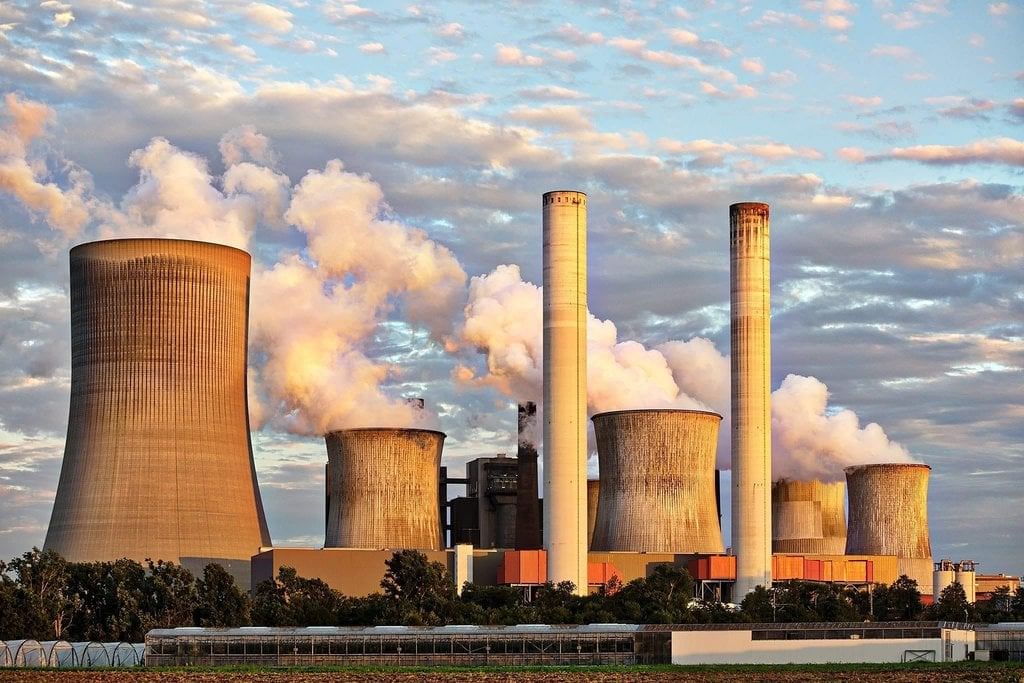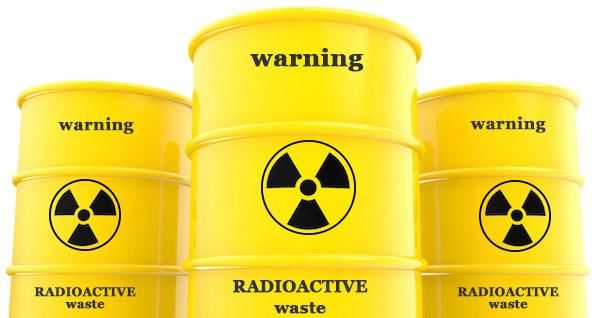Notes: Radioactive Pollution | People, Development and Environment for UGC NET PDF Download
| Table of contents |

|
| Definition |

|
| Sources of Radioactive Pollution |

|
| Effects of Radioactive Pollution |

|
| Control and Monitoring of Radioactive Pollution |

|
Definition
Radioactive pollution refers to the unintended or undesirable presence of radioactive substances on surfaces or within solids, liquids, or gases.
 This contamination presents significant hazards due to the radioactive decay of these contaminants, which emit harmful ionizing radiation such as alpha particles, beta particles, gamma rays, or neutrons.
This contamination presents significant hazards due to the radioactive decay of these contaminants, which emit harmful ionizing radiation such as alpha particles, beta particles, gamma rays, or neutrons.
Sources of Radioactive Pollution
Radioactive contamination can originate from various sources:
- Release of Radioactive Gases, Liquids, or Particles: These can be discharged into the environment during certain industrial processes or accidents.
- Nuclear Fuel Reprocessing: The release of radioactive gases like xenon is an inevitable byproduct of reprocessing nuclear fuel.
- Nuclear Fallout: This refers to the residual radioactive material propelled into the upper atmosphere following a nuclear blast or a nuclear reactor accident, which then falls back to Earth.
Effects of Radioactive Pollution
The effects of radioactive pollution are severe and far-reaching:
- Health Impacts: High doses of radiation can significantly increase the risk of cancer and can cause acute radiation syndrome, which includes symptoms such as nausea, vomiting, and hair loss.
- Environmental Contamination: Following an atmospheric nuclear weapon discharge or a nuclear reactor containment breach, the surrounding air, soil, plants, animals, and humans become contaminated by nuclear fuel and fission products.

- Long-term Contamination: Radioactive materials like uranyl nitrate can contaminate the ground, leading to long-lasting environmental impacts.
- Notable Incidents: Examples of widespread radioactive contamination include the Bikini Atoll nuclear tests, the Rocky Flats plant in Colorado, the Fukushima Daiichi Nuclear Disaster, the Chernobyl Disaster, and the area around the Mayak Facility in Russia.
Control and Monitoring of Radioactive Pollution
Effective control and monitoring of radioactive pollution involve several strategies:
- Concrete Containment: Constructing concrete surfaces to isolate radioactive contamination and safely disposing of radioactive materials.
- Access Control Measures: Implementing barriers, and requiring changes of clothing and footwear before accessing radioactive areas to prevent contamination spread.
- Contamination Control Products: Using fixatives, strippable coatings, and decontamination gels to manage and clean radioactive contamination.
- Emphasis on Containment: Prioritizing the containment of radioactive materials to prevent their spread into the environment.
Types of Ionizing Radiation
- Alpha Particles: These are heavy, positively charged particles that can be stopped by a sheet of paper or human skin. However, if ingested or inhaled, they can cause significant internal damage.
- Beta Particles: These are lighter, negatively charged particles that can penetrate the skin but are generally stopped by materials like plastic or glass.
- Gamma Rays: These are high-energy photons that can penetrate deeply into materials, including human tissue. They require dense materials like lead for effective shielding.
- Neutrons: These particles can penetrate most materials and require substances rich in hydrogen, like water or concrete, for shielding.
Preventive Measures
- Radiation Shielding: Using materials like lead, concrete, and water to shield against radiation exposure in environments where radioactive materials are used.
- Regular Monitoring: Implementing rigorous monitoring systems to detect any leaks or releases of radioactive materials in nuclear facilities.
- Emergency Preparedness: Establishing robust emergency protocols to handle potential radioactive leaks or accidents swiftly and effectively.
- Public Awareness: Educating the public about the risks of radiation exposure and the importance of safety measures in areas near nuclear facilities.
Impact on Ecosystems
- Soil Contamination: Radioactive particles can bind with soil particles, leading to long-term contamination that affects plant growth and soil health.
- Water Contamination: Radioactive materials can enter water bodies, affecting aquatic life and potentially entering the human food chain through contaminated water or seafood.
- Biodiversity: Prolonged exposure to radiation can lead to genetic mutations in plants and animals, potentially leading to loss of biodiversity and disruptions in ecosystems.
By understanding the sources, effects, and control measures of radioactive pollution, we can better protect human health and the environment from its harmful impacts.
|
25 videos|43 docs|10 tests
|
FAQs on Notes: Radioactive Pollution - People, Development and Environment for UGC NET
| 1. What are the main sources of radioactive pollution? |  |
| 2. What are the effects of radioactive pollution on the environment and human health? |  |
| 3. How is radioactive pollution controlled and monitored? |  |
| 4. What are some measures that can be taken to reduce the impact of radioactive pollution? |  |
| 5. How does radioactive pollution affect marine life in oceans and seas? |  |















